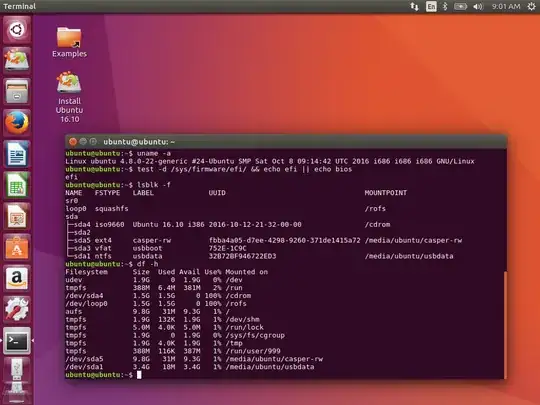Please tell me more details, and I will try to solve your problem, to help you use mkusb and if you have found a bug, to fix that bug.
First, check the points described in the answer by @ubfan1.
Second, please tell us more about your system:
Which version of Ubuntu did you try to install (only 16.10 or some other version)?
'recently i burned a copy of quebes with mkusb': I guess you mean Qubes.
In what computers did you test (brand name and model)?
Do those computers boot in BIOS or UEFI mode?
What graphics and wifi chips/cards were there is those computers? (Some chips/cards need boot options and/or proprietary drivers.)
Ubuntu 16.10 32-bit: It works for me to create a persistent live drive from the iso file ubuntu-16.10-desktop-i386.iso.

In order to make a 32-bit system boot also in UEFI mode, you need usb-pack-efi, so please install it into the system, where you have mkusb,
sudo apt-get install usb-pack-efi
If you are running an installed system in UEFI mode, it will be possible but difficult to install grub-pc, which is necessary to make a USB pendrive bootable in BIOS mode. A work-around is to create a live help system, that you install into a separate USB drive, for example according to the following links,
mkusb/persistent#Compressed_image_file_with_a_persistent_live_system
mkusb/persistent#Small_9w_systems_with_guidus_alias_mkusb-dus_and_gparted_installed
Qubes: It works for me to clone from the iso file Qubes-R3.2-x86_64.iso to a USB pendrive and use that pendrive to install Qubes.
Notice that mkusb can clone most linux iso files to bootable live-only USB drives, but can only create persistent live drives from Ubuntu (all flavours and current versions) and Debian Jessie and a few linux distros derived from them (for example Linux Mint, LXLE and ToriOS). Furthermore, the Qubes iso file is [an image of] an installer, not a live system.
